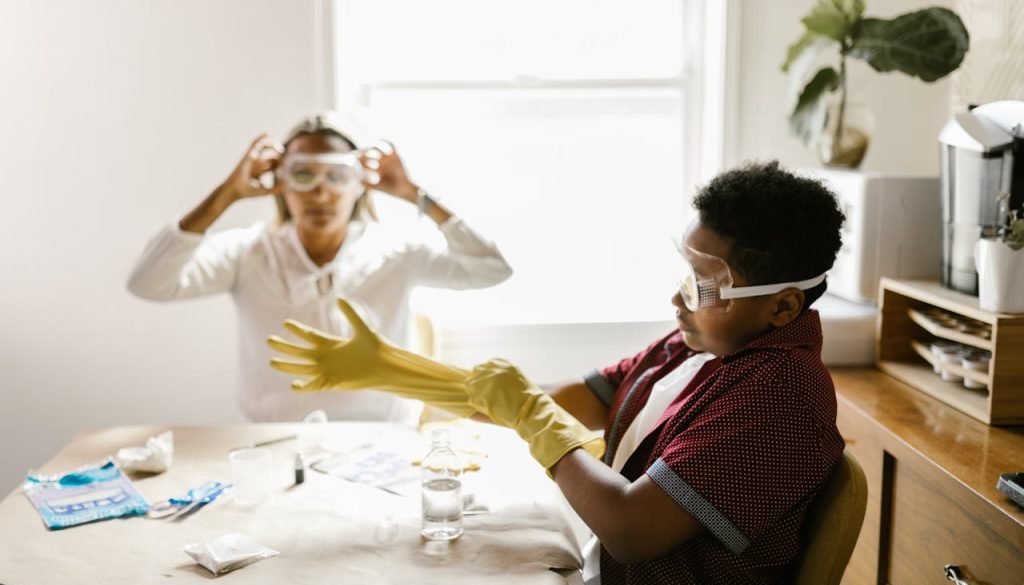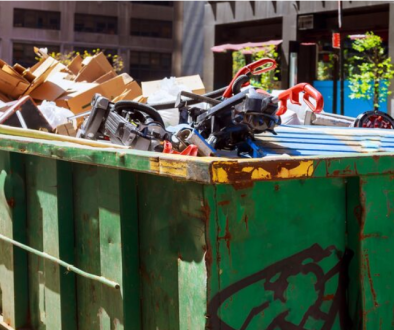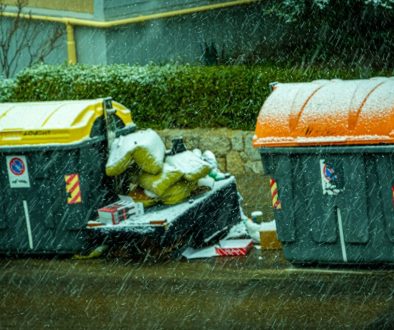Chemical spills can happen when you least expect them, and having a quick plan in place can make a big difference. From cleaning supplies under your sink to old tins of paint in the garage, everyday items can become risky if they leak or tip over. Spills inside your home aren’t just messy, they can be dangerous to your skin, lungs, and even to pets or kids nearby. That’s why it’s so important to act quickly, safely, and responsibly.
Late summer, especially around August, is a busy time with home projects often in full swing. Whether you’re clearing out the shed, repainting rooms, or deep-cleaning the kitchen, the risk of knocking over bottles or tins is higher than usual. Knowing what to do right away, before the damage spreads, can protect you and your home from lasting problems. Let’s take a look at what steps to take when a chemical spill happens.
Assessing The Spill: Stay Calm, Stay Smart
When you notice a chemical spill, the first reaction might be to wipe it up straight away but sometimes that choice can make things worse. Before anything else, stop and look at what you’re dealing with. Take a second to check for any labels on the container. Was it bleach, oven cleaner, paint thinner or something else? This will influence how you handle it.
If you’re not sure what the substance is, or if the smell is very strong, you’ll want to avoid breathing in the fumes. Open nearby windows and move others, especially children or pets, out of the area. For spills involving flammable or toxic chemicals, it’s better to step back and get professional help rather than trying to clean it yourself.
Safety comes first. That means:
– Putting on gloves or safety glasses if they’re near. Use any protective gear you have, even if it’s just an old top and some goggles for now.
– Avoiding bare skin contact. If your skin does touch the substance, wash it off straight away with mild soap and lots of water.
– Keeping your face away from the spill. Don’t lean in too close or try to sniff it.
One example we’ve seen regularly during late summer is people moving tins of wood stain or weed killer in hot sheds. Those tins can get leaky due to the heat or age. The spill then spreads into tools or storage boxes where fumes build quickly. Recognising this kind of spill early can stop it travelling further or entering drains.
If the spill is large, contains unknown chemicals, or is near an open flame or source of heat, it’s safer to treat it as a hazard and step away. You don’t want to risk inhaling fumes or starting a fire by using the wrong cleaning method.
Immediate Action Steps: Contain and Ventilate
Once it’s clear that the spill isn’t posing an immediate danger to you or those around you, it’s time to take control of the area. Start by containing the spill to stop it from spreading across floors or into cracks.
Here’s a simple approach:
1. Use kitchen roll, old rags, or cat litter to stop the spill from reaching other areas. If it’s on a surface like tile or laminate, try to direct the liquid into one corner and stop it there.
2. Ventilate the room by opening doors and windows where possible. Good airflow reduces the strength of any odours or fumes.
3. Don’t use fans near the spill. They might spread the fumes rather than help remove them.
4. Avoid mixing cleaning products. This is particularly important with chemicals like bleach and ammonia, which together can produce dangerous gases.
After containing the spill, use tools that you’re okay with throwing away. Don’t keep mops, sponges, or brushes used in the cleanup. Put all affected materials, including gloves and rags, into a sealed bag until they can be taken away as hazardous waste.
Finally, wash your hands with soap and warm water, even if you think they didn’t touch anything dangerous. It’s a good follow-up step that many people skip.
Doing all this quickly keeps the problem contained and helps you avoid injury, damage to surfaces, or long-lasting odours in the house. Once done, think about what you’ll do with the waste collected, which we’ll get into shortly.
Proper Disposal Of Chemical Waste In Cheshire
Once the immediate spill is cleaned up, the next step is figuring out what to do with the leftover materials. This can include soaked cloths, empty bottles, or unused contents from damaged containers. Throwing them in with your regular rubbish is never a safe option. These materials can release fumes or leach harmful substances into the soil or water if they’re not handled right.
In Cheshire, chemical waste, especially anything classed as hazardous, must be disposed of following local guidelines. Household waste recycling centres may accept certain items like paint tins or cleaning chemicals, but there are strict limits on what they’ll take and how it should be packed. Some items may need labelling, double-bagging, or special containers.
If the spill involves a larger quantity or a mix of items, it may be more practical to use skip hire in Winsford that accepts hazardous or chemical waste. A professional service can make sure everything is collected and transported safely, keeping it separate from general waste. This can prevent unnecessary risks and help you stick to the right disposal rules.
Here’s what to keep in mind when preparing chemical waste for collection:
– Keep different types of chemicals separate if possible.
– Do not mix liquids together, even small amounts.
– Use tightly sealed containers that won’t leak in transit.
– Label items clearly, especially if the original label is missing or hard to read.
– Let the collection team know in advance what kinds of materials you’re disposing of.
Disposing of chemical waste properly isn’t just about keeping your own home safe, it’s also a big step in protecting your local community and environment.
Preventing Future Spills At Home
Trying to clean up chemical spills once damage is done can be stressful, but a few simple habits make it much less likely to happen again. Start by checking where and how you store products. A lot of spills come from squeezing too many containers into small spaces or leaving things unsealed. Over time, leaks and cracks in bottles can develop, especially during warmer months.
Choose a storage spot that’s cool, dry, and easy to reach. Garages, sheds, and utility cupboards are common, but they should be kept tidy so items aren’t bumping into each other. Store heavier, awkward containers low to the ground where they can’t fall and break. Avoid placing liquids above head level.
It also helps to give everything a quick check now and then. Look for any swelling, strange smells, or sticky containers that might be leaking. Summer is a good time to check this, especially since heat can speed up wear and tear on plastic packaging.
To stay on track:
– Keep similar items together so it’s easier to spot something out of place.
– Write the date you bought or opened each item with a marker. It’s easy to forget how long it’s been sitting there.
– Don’t hang on to chemicals you don’t use. If it’s just taking up space, it might be better off removed and disposed of safely.
– Keep kids and pets away from chemical storage areas, even if the containers seem sealed.
Preventing chemical spills isn’t about overhauling your home. It’s about making small, steady changes that reduce risk and keep things easier to manage over time.
Making Home Safety a Habit
Spilling household chemicals is stressful, but quick thinking and the right steps will get everything back in order fast. Recognising the type of substance, containing the spread, and handling the waste safely all go a long way in limiting damage and danger. Local guidelines in Cheshire support safe methods for disposal, and services like skip hire in Winsford can help when things go beyond what household bins and centres can handle.
The best way to deal with chemical spills is to stop them from happening in the first place. Regular checks of your storage spaces, better organisation, and getting rid of old products all play a part. These simple changes not only protect your health but also make your home feel more in control and safer day to day.
Staying aware of how chemical waste is managed also means doing your part for your neighbours and environment. Whether it’s a leaky bottle of detergent or a knocked-over tin of fertiliser, the way you respond can make a big difference.
Ensure your home stays safe from chemical mishaps by addressing proper disposal and prevention measures. If you’re managing larger waste or need assistance with hazardous materials, consider using skip hire in Winsford for professional support. Enviro Skip Hire can help ensure everything’s sorted efficiently and safely. For more details on available services, explore our options.




